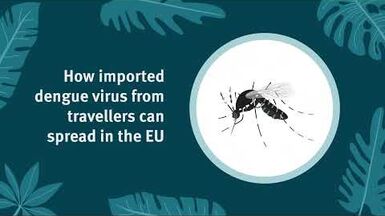Imported methicillin-resistant Staphylococcus aureus, SwedenArchived
The authors analyzed data on 444 imported cases of methicillin-resistant Staphylococcus aureus (MRSA) in Sweden during the period 2000-2003. The risk for MRSA carriage or infection in returning travellers ranged from 0.1 per million travellers returning from Nordic countries to 59.4 per million travellers returning from North Africa and the Middle East.
Stenhem M, Ortqvist A, Ringberg H, Larsson L, Olsson Liljequist B, Haeggman S, Kalin M, Ekdahl K.Emerg Inf Dis 2010 Feb;16(2):189-96.
Description: The authors analyzed data on 444 imported cases of methicillin-resistant Staphylococcus aureus (MRSA) in Sweden during the period 2000-2003. The risk for MRSA carriage or infection in returning travellers ranged from 0.1 per million travellers returning from Nordic countries to 59.4 per million travellers returning from North Africa and the Middle East. The regions associated with a risk for MRSA carriage or infection greater than 3 per million travellers were in order of importance: UK/Ireland, North America, Northeastern Mediterranean, South America, East Asia, Oceania/Pacific Islands, Sub-Saharan Africa, and North Africa/Middle East. Most imported MRSA cases were healthcare-acquired, but regions with the highest risk for MRSA in travellers also had the highest percentage of community-acquired MRSA. The characteristics of the MRSA isolates depended on the region of origin and on whether they were community- or healthcare-acquired.
Public health significance: Skin and soft tissue infections (SSTI) are the leading cause of consultation in returning travellers with skin disease. Most of SSTI are due to Staphylococcus aureus. Travellers to countries with a higher prevalence of MRSA than in their own country have a greater risk of acquiring MRSA. Countries with a low prevalence of MRSA such as Sweden offer the opportunity to study the epidemiology of imported MRSA cases. Knowledge of differences in the risk of MRSA acquisition during foreign travel may lead to improved control measures to prevent further transmission from imported cases.
Key Words. Methicillin-resistant Staphylococcus aureus, travel




